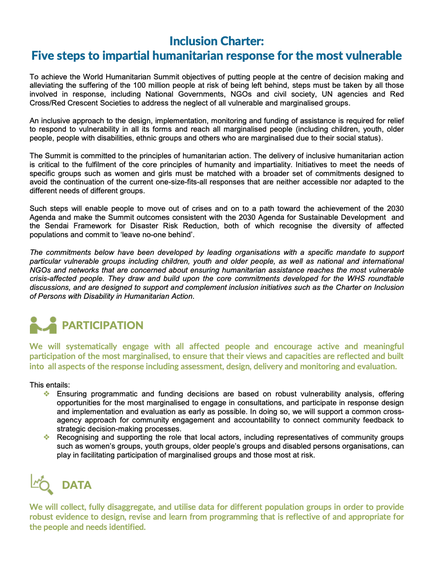Five steps to impartial humanitarian response for the most vulnerable

To deliver impartial and accountable humanitarian assistance that responds to vulnerability in all its forms, and reaches the most marginalised people (including children, youth, older people, people with disabilities, ethnic groups and others marginalised due to their social status), an inclusive approach to the design, implementation, monitoring and funding of humanitarian assistance is required.
The Inclusion Charter consists of five steps (participation, data, funding, capacity, coordination) that can be taken by humanitarian actors to ensure that assistance reaches those most in need. The commitments have been developed by leading organisations that have a specific mandate to support particular vulnerable groups including children, youth, older people and persons with disabilities, as well as national and international NGOs and networks that are concerned about ensuring humanitarian assistance reaches the most vulnerable crisis-affected people.
The Charter has been endorsed by over 30 humanitarian actors and it is still possible to sign up and support the document and the agencies involved in its development in their efforts to seek donor funding to develop it into a practical tool in support of humanitarian programming. For more information about the commitments, the supporters and to endorse the Charter, please visit: https://www.inclusioncharter.org/agencies/all-agencies